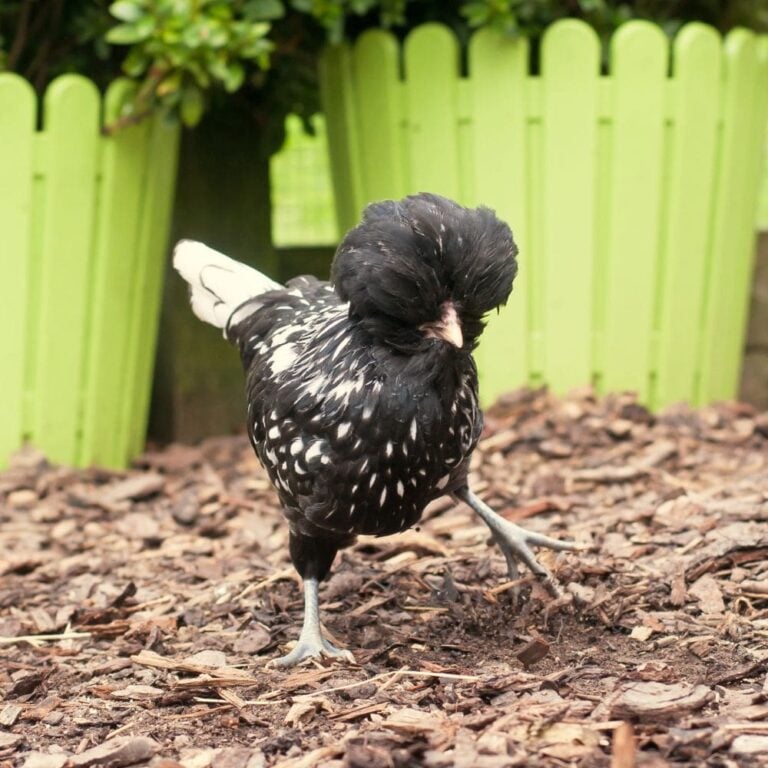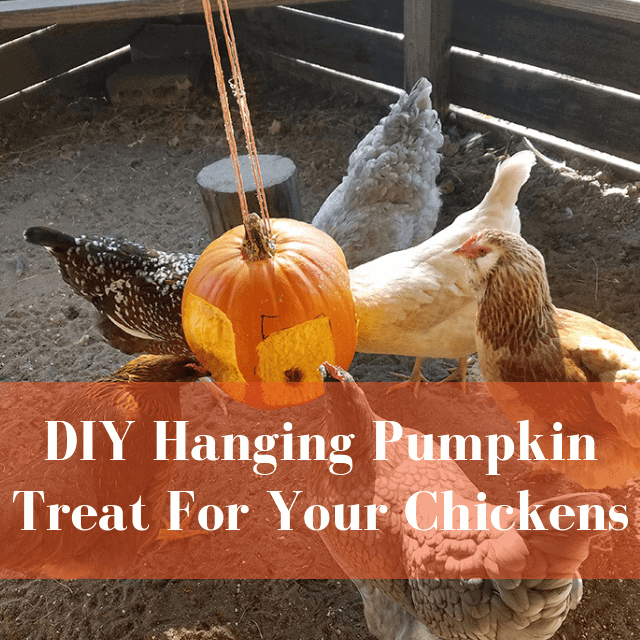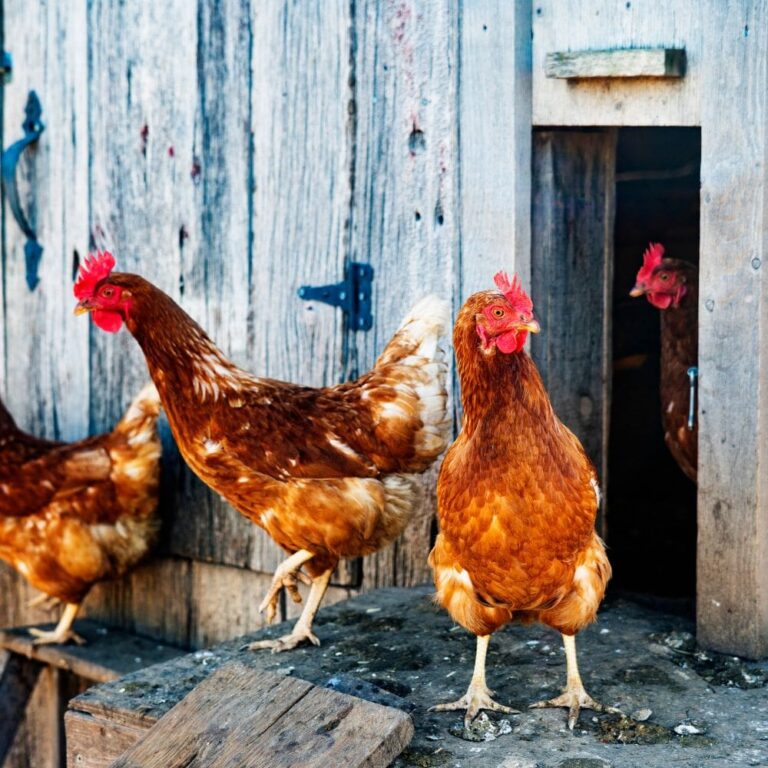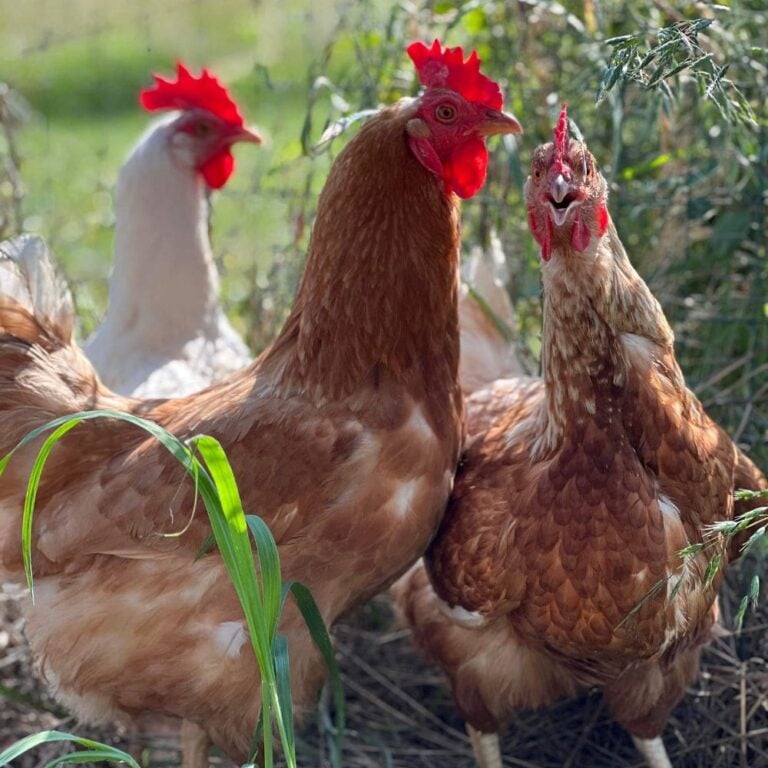An egg-bound chicken sounds horrific, and it can be. It is a common issue that can affect chickens of all breeds and ages. It may be embarrassing to your feathered friend, but this condition occurs when a hen is unable to pass an egg properly (yep, the egg gets stuck). If left untreated, egg-bound chickens can have life-threatening issues. Here’s a quick guide to help manage your egg-bound buddies.
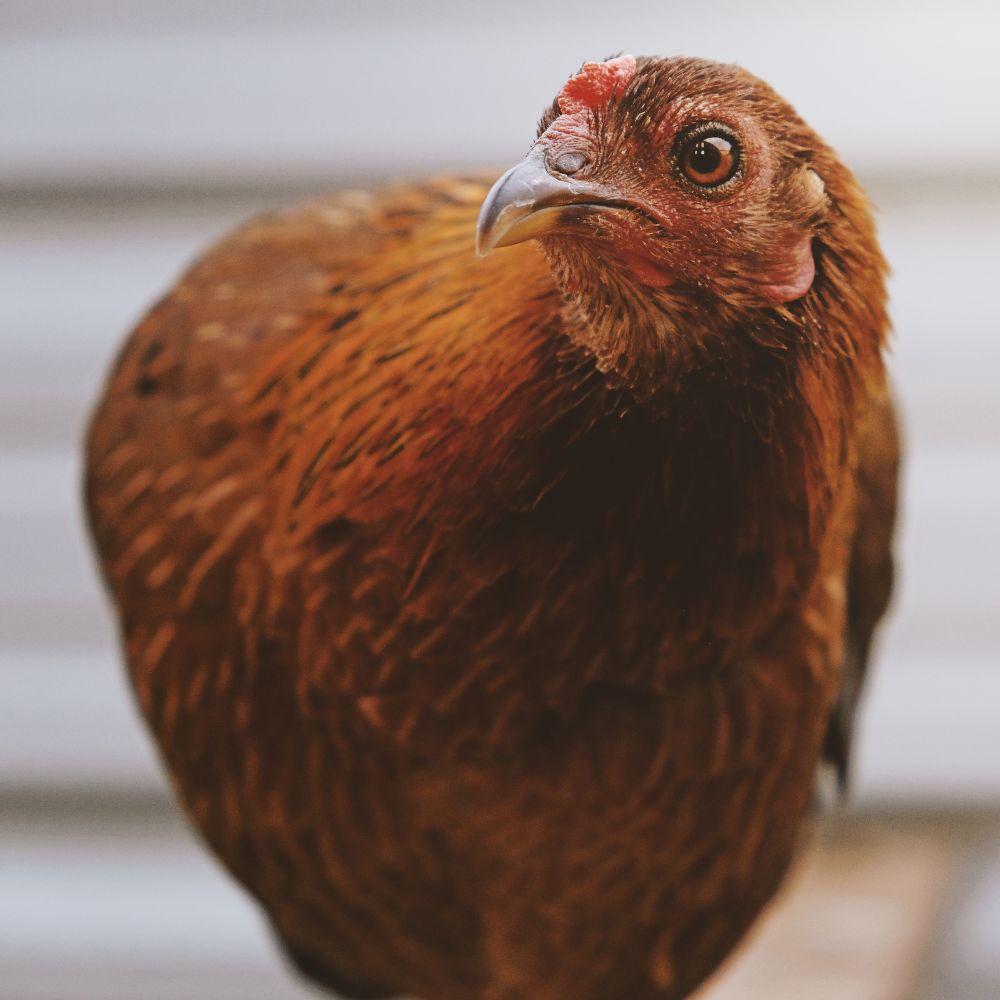
Table of Contents (Quickly Jump To Information)
What Does it Mean if Your Chicken is Egg Bound?
Egg binding occurs when an egg gets stuck in the hen’s reproductive system and cannot pass through. It is a serious condition that can lead to dehydration, weakness, and even death if not treated promptly. Just think about it…an egg that is stuck in a chicken can’t be good under any circumstances.
It can happen due to various reasons, such as the egg being too large, muscle weakness in the hen’s reproductive tract, or an obstruction in the oviduct. The condition can affect hens of all ages, but it is more common in older hens or those with underlying health issues.
It’s not an everyday event for most chicken keepers, but it can (and does) happen from time to time.
Symptoms of an Egg Bound Hen
When a chicken is egg-bound, it means that it is unable to lay an egg. As mentioned at the very beginning of this article – this condition can be life-threatening if not treated promptly. It’s important for chicken owners to be able to recognize the symptoms of an egg-bound chicken. Below are some common symptoms to watch for.
- Lethargy – If your chicken is egg-bound, she may seem unusually tired or lethargic. She may be less active than usual and may spend more time sitting or lying down, oftentimes off by herself.
- Loss of appetite -An egg-bound chicken may also lose her appetite and show little interest in food or treats.
- Straining – When a chicken is trying to lay an egg but is unable to, she may strain or push, as if she is trying to pass something through her vent. You may notice her tail raised, and she may appear to be in pain. Abdominal straining is not something any bird will handle well.
- Distress – Egg-bound chickens may exhibit signs of distress such as panting, rapid breathing, or unusual noises.
- Swollen vent -The vent is the opening where the egg comes out of the chicken (a bit personal, right?). If your chicken is egg-bound, you may notice that her vent area appears swollen or enlarged. In some cases, you may also see a buildup of fecal matter on the feathers around the vent.
It’s important to note that not all egg-bound chickens will exhibit all of these symptoms. Some chickens may only show a few of these signs, while others may have more severe symptoms. Either way, if you suspect that your chicken may be egg-bound, it’s important to act quickly and not mess around.
By monitoring your chickens’ behavior and health regularly, you can identify any potential issues early on and take steps to prevent more serious problems from occurring.
Causes
Causes of egg binding in chickens can vary but are generally (not always) related to one or more of the following factors.
- Age – Older hens are more likely to experience egg binding as their muscles weaken and the egg-laying process becomes less efficient (we can all wear out).
- Poor nutrition – Chickens with a calcium deficiency or lack of vitamin D may have difficulty forming strong eggshells, which can lead to egg binding.
- Stress – Chickens that are stressed, either from factors such as temperature, loud noises, bullies in the barnyard, or scary predators, may have difficulty laying eggs.
- Lack of exercise – Chickens that are confined to a small space without the opportunity to move around may have weakened muscles that make it challenging to lay eggs. Obesity can also play a role.
- Nest box issues – A nesting box that is cramped or poop-filled can be a contributing factor. Also, a lack of enough laying boxes might inspire your hens to participate in an egg retention revolt (holding the eggs in because they can’t find a good place to lay them).
- Vent prolapse – If a hen lays an egg that’s too large it may cause swelling or a prolapsed vent. This can, in turn, cause problems that lead to a bound egg.
- Internal parasites – Parasites are troublemakers in many ways, and this is no exception. The stress of these tiny tyrants is enough to contribute to a bound egg.
- Genetic factors – Much like humans, some chickens get the short end of the stick with problematic genetics. This can cause some to be more prone to egg binding than others.
By understanding the causes of egg binding, you can take steps to prevent this condition from occurring in your flock. Providing your chickens with a healthy diet, plenty of space to move around and exercise, and a stress-free environment can help reduce the likelihood of egg binding. Regular monitoring of your flock’s health and behavior can also help you catch and address any potential issues before they become more serious.
Treatment Options
If you suspect that your chicken is egg-bound, it’s important to act quickly to provide her with appropriate care. There are several treatment options that can help your chicken to pass the egg. Here are the top go-to methods for helping an egg-bound bird.
Warm Baths
One common treatment for egg-bound chickens is to give them warm baths. Fill a tub or large bucket with warm water, deep enough to cover your chicken’s vent area. Soak your chicken in the water for about 15-20 minutes. This can help to relax the muscles and encourage the egg to pass. You may even consider using Epsom salts in the bath.
Of course, this might sound easier than it is…but it’s worth a try for sure.
Lubrication
Another treatment option is to use a lubricant to help the egg pass through the vent. Apply a small amount of vegetable oil or petroleum jelly to the vent area. Be careful not to push the egg further up into the oviduct. This will help to lubricate the area and possibly ease the passage of the egg.
Be sure to use a latex glove to prevent infection in your bird and protect yourself (it is not a glamour job).
Massage
While you may not buy a spa package for your backyard buddy, you can try gently massaging your chicken’s abdomen to help to stimulate the muscles. By doing so you will encourage the egg to pass. Be gentle and avoid putting too much pressure on the abdomen, as this can cause further injury.
Veterinary Care
In more severe cases, veterinary care may be necessary…if you have a vet that takes chickens as patients. A veterinarian can provide medications to help relax the muscles and reduce inflammation. They can also perform a physical exam to determine the best course of treatment.
Try, Try Again
It’s important to note that not all of these treatment options will work for every chicken. If you try one treatment and it does not seem to be helping, it may be necessary to try a different approach. Additionally, it’s important to take steps to prevent egg binding from occurring in the first place.
Prevention
I’m sure you’ve heard the old saying “Prevention is the best medicine.” And it truly is. Preventing egg binding in chickens is crucial to maintaining the health and well-being of your flock. Here are some prevention ideas to consider:
- Balanced diet – Provide a balanced and nutritious diet by feeding a high-quality feed packed full of good ingredients and minerals. A great diet is essential for egg production and overall health. Make sure that your chickens are getting enough calcium, as a deficiency can lead to weak or soft-shelled eggs that are more difficult to pass. You can provide calcium supplements, such as crushed eggshells or oyster shells, to ensure that your chickens are getting enough of this important mineral.
- Adequate hydration – Dehydration can contribute to egg binding, so make sure that your chickens always have access to clean water. In addition to providing fresh water, you can also add electrolytes to their water to help keep them hydrated if needed.
- Exercise and space – Chickens need adequate space and exercise to maintain their health and prevent egg binding. Make sure that your chickens have enough room to move around and do the things they love, like scratching and pecking. You can also provide perches, ramps, and toys to encourage movement and activity.
- Regular checkups – Regularly monitoring your chickens’ behavior and health is key to identifying potential issues before they become serious. Observe your chickens’ behavior and look for signs of stress, such as decreased appetite, lethargy, or abnormal posture. If you keep a close eye on your flock, you will know when one is acting strange.
- Reduce stress – Stress can also contribute to egg binding, so taking steps to reduce stress in your flock is important. Avoid overcrowding or introducing new birds too quickly. You can also provide fun activities, such as dust baths, hanging treats, and regular human interaction.
By taking these preventative measures, you can help to reduce the risk of egg binding in your flock.
Summary
It’s not a topic any of us like to talk about, but stuff happens and we have to deal with it.
Just remember by providing your chickens with a healthy, stress-free environment and giving them the proper care they need, you can help prevent egg binding and keep your feathered friends healthy and happy.

A happy wife, mother, teacher, writer, hobby farmer, lover of chickens, and contributor to Pampered Chicken Mama!

![Save Money On Chicken Feed: 8 Ways To Save Mega Bucks When Feeding Your Chickens What The Cluck?! Session 10 [Podcast]](https://thefrugalchicken.com/wp-content/uploads/2015/11/save-money-chicken-feed-feature.jpg)
